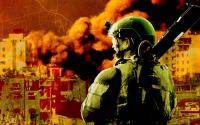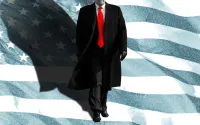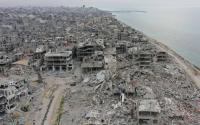22 January 2006Haaretz
Does Israel have organized crime? Is there a criminal mechanism that extends its tentacles deep into the top echelons of the government, army, police and justice system, sowing trepidation? Is there a well-organized establishment, with a leadership of "godfathers" and "soldiers" under its command, that operates freely under a facade of propriety? Does this organized crime establishment impose fear upon the entire Israeli society, endangering its security and well-being? Unfortunately, the answer to all of these questions is affirmative. In Israel, organized crime exists and it is very powerful indeed. The long reach of its members extends into the halls of government and the workings of the law. They have an ostensibly respectable appearance and a well-organized structure, with godfathers-rabbis and an army of soldiers at their command. They spread great intimidation upon their surroundings and they endanger the well-being and security of the entire society. They are called settlers. Citizens who live in a state plagued by organized crime direct their grievances mainly at the institutions of law that show helplessness in protecting constituent well-being. Now, when it appears that Israelis are finally starting to become disgusted with what is happening in the West Bank, they should direct most of their complaints at those who enabled the mechanism of crime to dominate the state's centers of power and to do whatever they desired in the occupied territories.
Like crime-plagued regions, there is also an extraterritorial area here, outside and above the law. It is like Pardes Daka in Jaffa, an area policemen were hesitant to enter for years because of the fear instilled by the crime family that dominated it. This is how it is in Amona, Hebron, the Skali Farm and Hill 725. The current fashion is to express shock over the actions of the Hebron settlers. Even Acting Prime Minister Ehud Olmert is threatening to get tough on the lawbreakers there. Defense Minister Shaul Mofaz quickly changed his spots, as he customarily does, adapting himself to the new tone and calling for the expulsion of all of the "criminals" from Hebron. To whom exactly is he referring? Only those who raised their hands against Israel Defense Forces soldiers. And where was he until now? The silence of the past sheds a hypocritical light upon the shock of the ministers and the public at large: For years, the settlers in Hebron rioted against their Palestinian neighbors until thousands of the latter were forced to abandon their homes and stores, and flee. Anyone visiting Hebron discovered a ghost town, but few in Israel wanted to know about this and even fewer were shocked and took action. Only when the settlers dared to attack soldiers and policemen did a hue and cry arise. But this cry should be targeted against those who allowed the crime to flourish over the years. This does not just involve the soldiers, policemen and Shin Bet agents who knew about it, kept silent and even supported it. As in all organized crime, much broader institutions of government were involved. The Housing Ministry, the IDF and the Civil Administration, which provided all of the "illegal outposts" with infrastructure, accompanied the construction work and provided protection and assistance, paved roads and equipped them with water and electricity - they all are involved in the crime. The executive branch facilitated the expansion of control by the crime families in the West Bank, and - like in organized crime - the judicial branch has been a partner in the corruption. The High Court of Justice, which is now postponing the ruling on the petition against several of the outposts, also must share some of the blame. The story of the construction of Amona, for example, is instructive: It was built on private Palestinian land back in 1995. The Housing Ministry provided NIS 2.1 million to finance the infrastructure, without any building permit. So why should we complain about the residents of Amona if the state funded the construction of their outpost? Even when the Civil Administration issued demolition orders in October 2004 for nine magnificent single-family homes in Amona, no one lifted a finger. That is the way it is when the fear of organized crime pervades the law enforcement system. It required the intervention of Peace Now for the High Court to discuss the demolition of illegal buildings. But the High Court acted as it always does on petitions of this type: It was in no big hurry. Last week, it granted another extension to the settlers, although it is not clear why. The High Court also saw no urgency regarding the squatters in Hebron's wholesale market. Since June 2001, when the Civil Administration issued an evacuation order, quite a few settlers' children have had time to spit in the faces of elderly Palestinians. In 2003 the state promised the High Court to evacuate the squatters, but not a thing was done to enforce this commitment. The High Court does not always behave this way. When nine residents of Rafah petitioned against the demolition of their homes in May 2004, Judge Eliahu Mazza did issue a late-night, temporary order against the demolition, but the court did not need more than 48 hours to cancel this, enabling the homes to be razed. Every time Palestinians have petitioned against the demolition of their homes, the High Court has acted swiftly and determinedly to reject these petitions. When it finds it convenient, the High Court is a fast and efficient instrument. There is no reason to get all excited now about the evacuation of a handful of squatters from Amona and the Hebron market. The real national mission is to clear out all of the centers of organized crime. Olmert, who waged a well-publicized war against another organized crime apparatus at the beginning of his career, should know this. The crime apparatus he now faces is strong, violent and immeasurably more dangerous than the Siboni brothers from Mevasseret Yerushalayim, whom he confronted precisely 30 years ago. At that time, he faced off against those who were intimidating a small town. Now he is facing those who are holding an entire state hostage.






